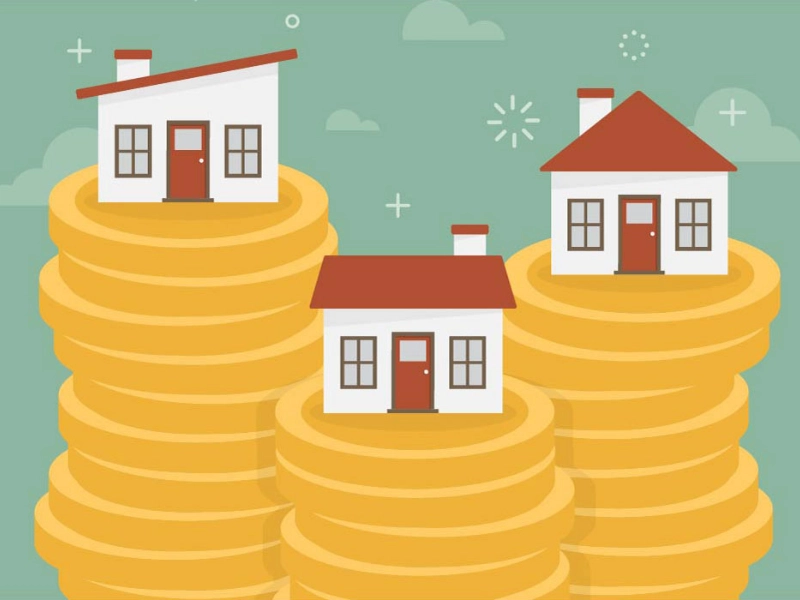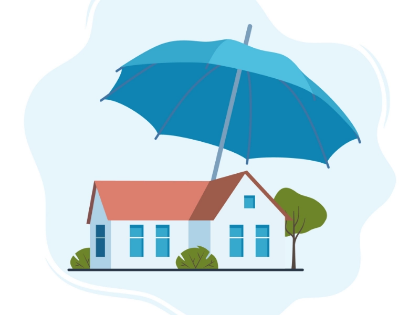How to Guarantee the Best Interest Rate
Achieving the best mortgage rate is crucial since it can result in thousands of dollars in savings for borrowers. Although mortgage rates change frequently, you can guarantee a competitive rate throughout the term of your loan. Rate locks can last as long as 60 days, although they usually last 30. This is how you do it:
1. Find a trustworthy lender.

2. Examine rates offered by several lenders.
 It's critical to evaluate the interest rates offered by several lenders because they can differ significantly. Over the course of your loan, a difference of just a few percentage points can result in savings of thousands of dollars.
Online searches for "mortgage lenders" are the most effective technique to locate the best rates. By defining parameters such as your desired property type and credit profile, you can focus your search. You can request rate quotations from a few possible lenders once you've identified a few. Read the fine print carefully because certain lenders might impose additional costs or demand a better credit score than others.
After locating a lender who provides the loan you're looking for, find out about their rate lock policies. Rate locks typically run for thirty, forty, or sixty days, although some lenders provide longer periods. Although longer terms may be more expensive up front, they might protect you from future interest rate increases.
Your expectations for future rates and your level of risk tolerance will determine when it is best to lock in your mortgage rate. Waiting can be a wiser course of action if you anticipate an improvement in your income or credit. Locking in your rate sooner could be a smart move, though, if you're worried about a potential spike in interest rates.
It's critical to evaluate the interest rates offered by several lenders because they can differ significantly. Over the course of your loan, a difference of just a few percentage points can result in savings of thousands of dollars.
Online searches for "mortgage lenders" are the most effective technique to locate the best rates. By defining parameters such as your desired property type and credit profile, you can focus your search. You can request rate quotations from a few possible lenders once you've identified a few. Read the fine print carefully because certain lenders might impose additional costs or demand a better credit score than others.
After locating a lender who provides the loan you're looking for, find out about their rate lock policies. Rate locks typically run for thirty, forty, or sixty days, although some lenders provide longer periods. Although longer terms may be more expensive up front, they might protect you from future interest rate increases.
Your expectations for future rates and your level of risk tolerance will determine when it is best to lock in your mortgage rate. Waiting can be a wiser course of action if you anticipate an improvement in your income or credit. Locking in your rate sooner could be a smart move, though, if you're worried about a potential spike in interest rates.
3. Request a rate quotation.
 In addition to the external economic factors that frequently impact mortgage rates, individual factors like your debt-to-income ratio and credit history can also have an impact. It's crucial to shop around and compare rates from several lenders because of this. Additionally, bear in mind that the length of your mortgage term will affect the total amount of interest you pay over the course of the loan.
You will need to give some basic details about your financial condition and the purchase or refinance of your house in order to receive a rate quote. It's a good idea to acquire supporting documentation, including bank statements and paystubs, in advance of this phase. Having your credit score handy is also a smart idea, as it can help you figure out if you qualify for different lending programs and are creditworthy.
Once you've selected a lender, it's a good idea to inquire about their lock periods and mortgage rates. Keep in mind that interest rates on mortgages are subject to regular fluctuations, so you should select a rate lock period that coincides with the date you want to close.
It's also important to note that extending or relocking a mortgage rate typically entails extra fees from lenders. It's crucial to remember that you cannot re-lock your mortgage in the event that interest rates drop, as doing so will force you to pay more interest than you were initially eligible for.
In addition to the external economic factors that frequently impact mortgage rates, individual factors like your debt-to-income ratio and credit history can also have an impact. It's crucial to shop around and compare rates from several lenders because of this. Additionally, bear in mind that the length of your mortgage term will affect the total amount of interest you pay over the course of the loan.
You will need to give some basic details about your financial condition and the purchase or refinance of your house in order to receive a rate quote. It's a good idea to acquire supporting documentation, including bank statements and paystubs, in advance of this phase. Having your credit score handy is also a smart idea, as it can help you figure out if you qualify for different lending programs and are creditworthy.
Once you've selected a lender, it's a good idea to inquire about their lock periods and mortgage rates. Keep in mind that interest rates on mortgages are subject to regular fluctuations, so you should select a rate lock period that coincides with the date you want to close.
It's also important to note that extending or relocking a mortgage rate typically entails extra fees from lenders. It's crucial to remember that you cannot re-lock your mortgage in the event that interest rates drop, as doing so will force you to pay more interest than you were initially eligible for.
4. Request a lock-in rate.
 By guaranteeing that your mortgage interest rates won't fluctuate between when you begin your house hunt and when you close, a rate lock offers you piece of mind. Over the course of your loan, this protection might save you hundreds of dollars.
If you make modifications to your loan conditions or financial circumstances, your lender could nevertheless revoke your rate lock in certain circumstances. Your mortgage rate lock may be nullified, for instance, if you establish a new credit line or adjust your debt-to-income ratio.
You might ask your lender for a float-down option if you believe that rates will decline soon. This gives you the option to switch to a cheaper rate in the event that rates drop, but it usually comes with additional expenses and may delay closure.
It can be challenging to determine when the optimum moment is to lock in a mortgage rate because rates change frequently. Find a lender who offers adjustable mortgage lock periods to avoid paying more than you should, and think about getting a longer rate lock period to give you the flexibility you require when applying for a mortgage.
Get the most recent advice, tactics, and news from CNBC Select on credit cards, money matters, personal finance, and other topics. Join us on Facebook, Instagram, Twitter, TikTok, and Facebook for comprehensive coverage of all things pertaining to your pocketbook.
By guaranteeing that your mortgage interest rates won't fluctuate between when you begin your house hunt and when you close, a rate lock offers you piece of mind. Over the course of your loan, this protection might save you hundreds of dollars.
If you make modifications to your loan conditions or financial circumstances, your lender could nevertheless revoke your rate lock in certain circumstances. Your mortgage rate lock may be nullified, for instance, if you establish a new credit line or adjust your debt-to-income ratio.
You might ask your lender for a float-down option if you believe that rates will decline soon. This gives you the option to switch to a cheaper rate in the event that rates drop, but it usually comes with additional expenses and may delay closure.
It can be challenging to determine when the optimum moment is to lock in a mortgage rate because rates change frequently. Find a lender who offers adjustable mortgage lock periods to avoid paying more than you should, and think about getting a longer rate lock period to give you the flexibility you require when applying for a mortgage.
Get the most recent advice, tactics, and news from CNBC Select on credit cards, money matters, personal finance, and other topics. Join us on Facebook, Instagram, Twitter, TikTok, and Facebook for comprehensive coverage of all things pertaining to your pocketbook.







